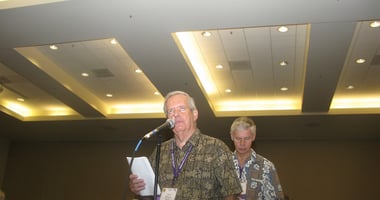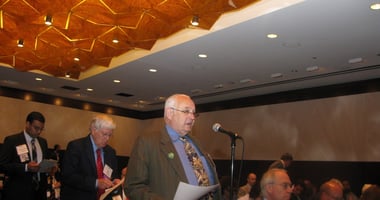Delegates at the AMA House of Delegates Interim Meeting in Honolulu approved a report yesterday...
AMA Delegates Seek Data, Recommendations on Sports-Related Concussions
 |
Concussion risk associated with sports was the subject of several resolutions at the AMA’s annual policymaking meeting this week, including one sponsored by the AMA Section Council on Psychiatry calling for a report by the CSPH. In reference committee hearings on Sunday, the resolution received supportive testimony from many physicians, and during the meeting of the House of Delegates yesterday, the resolution was referred without debate to the AMA Board of Trustees, which will then request a report from the CSPH.
“I evaluate many young people who have histories of significant head trauma, including sports-related concussions. I’ve seen the effects of these injuries firsthand,” said David Fassler, M.D., alternate delegate for the American Academy of Child and Adolescent Psychiatry, at reference committee hearings. “While many children and adolescents recover fully from a concussion, a significant number experience serious and lasting consequences including headaches, problems paying attention, impaired memory, irritability, sleep disturbance, and depression.... Our resolution asks the [CSPH] to prepare a report summarizing the existing data on the risk of concussion in youth sports. Such a report would also provide a scientific basis for educating physicians and the general public and for influencing public policy at the state, local, and national levels.”
In-depth coverage of this issue will appear in a future issue of Psychiatric News.
(Image: Mark Moran)




